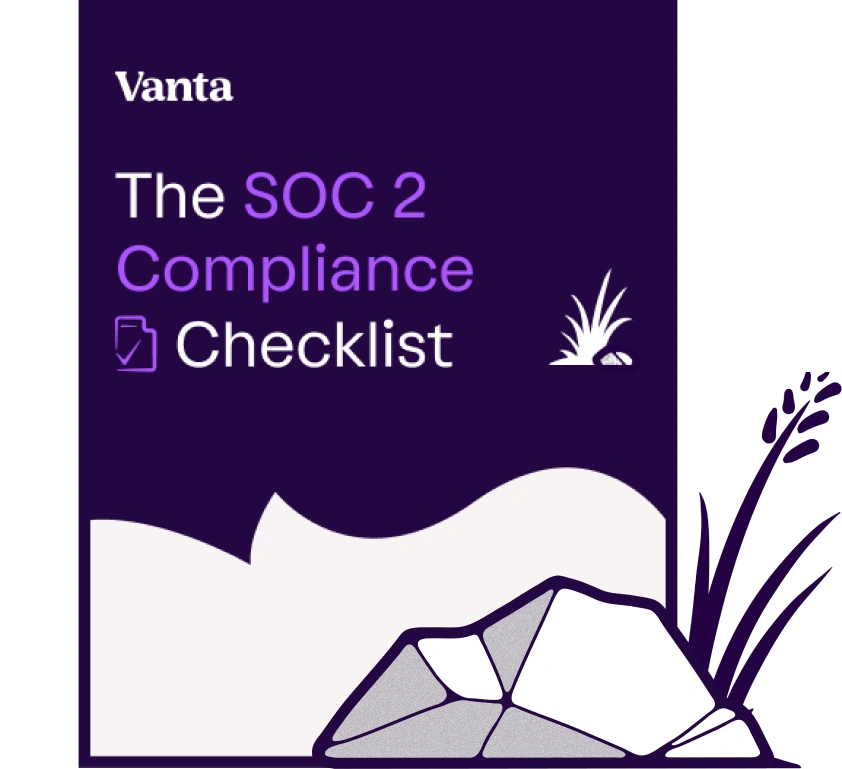

You’ve heard about SOC 2 reporting, and your company wants to obtain a SOC 2. You want a clear and shareable way to communicate to potential customers your commitment to strong security practices.
A SOC 2 report is a standardized and widely recognized way to assure your customers, prospects, and business partners that your services are secure, reliable, and trustworthy. Created by the American Institute of CPAs (AICPA), the SOC 2 audit and reporting process involves the assessment and documentation of your company’s verified security practices. To complete a SOC 2 audit, your company’s security measures must be reviewed and verified by a certified auditor. (For more background on SOC 2, check out Vanta's SOC 2 Guide.)
Only licensed CPA firms can perform a SOC 2 examination. Previously, to conduct a SOC 2 audit, your single option was to find a CPA firm and embark upon a multilayered audit review process with significant manual data collection requirements — which would, in turn, require substantial time from your team. SOC 2 reporting has typically involved many hours with an auditor on-site in advance of your audit; auditors would conduct in-depth interviews with staff, and work with your team to manually collect evidence regarding your security processes.
Following this pre-audit work, companies would spend time implementing any recommended fixes to their security systems to prepare for the audit itself — which would include further interviews and additional evidence collection. This was followed by an auditor’s time to document the lengthy process, and, finally, to write the report.
{{cta_simple1="/cta-modules"}}

Streamlining SOC 2 compliance
How SOC 2 automation empowers auditors and organizations

Streamlining SOC 2 compliance
How SOC 2 automation empowers auditors and organizations

Download the checklist
Streamlining SOC 2 compliance
You’ve heard about SOC 2 reporting, and your company wants to obtain a SOC 2. You want a clear and shareable way to communicate to potential customers your commitment to strong security practices.
A SOC 2 report is a standardized and widely recognized way to assure your customers, prospects, and business partners that your services are secure, reliable, and trustworthy. Created by the American Institute of CPAs (AICPA), the SOC 2 audit and reporting process involves the assessment and documentation of your company’s verified security practices. To complete a SOC 2 audit, your company’s security measures must be reviewed and verified by a certified auditor. (For more background on SOC 2, check out Vanta's SOC 2 Guide.)
Only licensed CPA firms can perform a SOC 2 examination. Previously, to conduct a SOC 2 audit, your single option was to find a CPA firm and embark upon a multilayered audit review process with significant manual data collection requirements — which would, in turn, require substantial time from your team. SOC 2 reporting has typically involved many hours with an auditor on-site in advance of your audit; auditors would conduct in-depth interviews with staff, and work with your team to manually collect evidence regarding your security processes.
Following this pre-audit work, companies would spend time implementing any recommended fixes to their security systems to prepare for the audit itself — which would include further interviews and additional evidence collection. This was followed by an auditor’s time to document the lengthy process, and, finally, to write the report.
{{cta_simple1="/cta-modules"}}





Explore more SOC 2 articles
Introduction to SOC 2
Preparing for a SOC 2 audit
SOC 2 reporting and documentation
Streamlining SOC 2 compliance
SOC differences and similarities
Additional SOC 2 resources
Get started with SOC 2
Start your SOC 2 journey with these related resources.

The SOC 2 Compliance Checklist
Simplify and expedite your company’s SOC 2 audit and report process with Vanta. This checklist walks through the SOC 2 attestation process.

Vanta in Action: Compliance Automation
Demonstrating security compliance with a framework like SOC 2, ISO 27001, HIPAA, etc. is not only essential for scaling your business and raising capital, it also builds an important foundation of trust.


